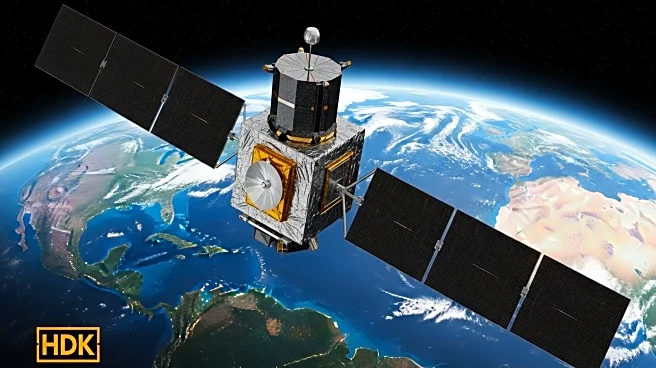What's Happening?
The Global Methane Hub has initiated the Time2Graze project, aimed at reducing methane emissions in Latin America and Africa through satellite technology. The project, launched at the Africa Climate Summit in Ethiopia, will develop tools interfacing with satellite systems to provide real-time estimates of grassland biomass, aiding farmers in effective cattle grazing. The initiative, funded with $4.7 million, targets countries like Brazil, Colombia, Argentina, and several African nations. The project seeks to improve livestock nutrition, productivity, and reduce emissions, addressing the urgent need for sustainable livestock farming in these regions.
Why It's Important?
Methane is a potent greenhouse gas, significantly contributing to global warming. The Time2Graze project addresses the critical need to manage methane emissions from livestock, which account for a substantial portion of global emissions. By optimizing grazing practices, the project aims to secure the livelihoods of pastoralist communities while mitigating environmental impact. This initiative represents a strategic approach to balancing agricultural productivity with environmental sustainability, potentially setting a precedent for similar efforts worldwide.
What's Next?
The project will initially focus on eight countries, with potential expansion based on its success. The integration of satellite technology in agriculture could revolutionize livestock management, offering scalable solutions for emission reduction. Stakeholders, including international agricultural and environmental organizations, will likely monitor the project's outcomes to assess its viability for broader application.
Beyond the Headlines
The project highlights the intersection of technology and agriculture, emphasizing the role of innovation in addressing climate challenges. It also underscores the importance of international collaboration in tackling global environmental issues, with implications for policy development and resource allocation in the fight against climate change.








